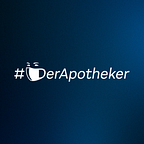Does homeopathy only have a placebo effect?
This article explains it to you
6 min readNov 19, 2022
This is a translation of my article “Homöopathie = Placeboeffekt? (Version 2.1)”, which I did with DeepL. If you find any mistakes, please write me. ApothekerDer@gmail.com
Placebo
Everything that we take and from which we expect a certain medicinal effect has a placebo effect.
